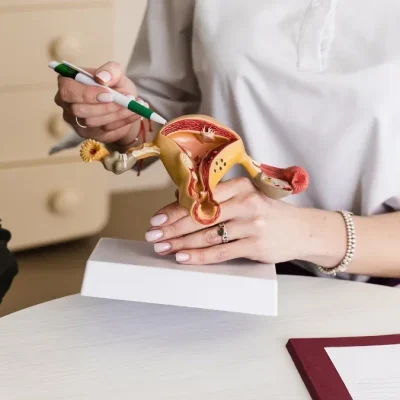If you’ve been experiencing urinary problems, such as frequent infections, blood in urine, or unexplained pain, you might need a Cystoscopy Treatment in Chennai. This simple yet effective procedure helps doctors examine your bladder and urinary tract to diagnose and treat various conditions.
Whether you’re looking for Cystoscopy Treatment in Neelankarai, Cystoscopy Treatment in Egmore, or Cystoscopy Treatment in Anna Nagar, finding the right medical center with experienced specialists is crucial. Let’s explore everything about cystoscopy—what it is, how it works, who needs it, and what to expect before, during, and after the procedure.
🩺 What is Cystoscopy?
Cystoscopy is a medical procedure where a doctor uses a thin, flexible tube with a camera (cystoscope) to look inside your bladder and urethra. This helps detect infections, blockages, tumors, stones, or other issues that may be causing urinary problems.
It is commonly recommended when patients experience:
✔ Blood in urine (hematuria)
✔ Painful urination
✔ Frequent urinary tract infections (UTIs)
✔ Trouble emptying the bladder
✔ Unexplained lower abdominal pain
🔍 How Does Cystoscopy Work?
The doctor gently inserts the cystoscope into the urethra and advances it into the bladder. This allows them to:
- Examine the lining of the bladder for infections or abnormalities.
- Take small tissue samples (biopsy) for further testing.
- Remove bladder stones or small growths if needed.
- Diagnose conditions like interstitial cystitis, bladder cancer, or urinary strictures.
✅ Who Qualifies for Cystoscopy?
A cystoscopy is recommended for people who have:
✔ Frequent urinary tract infections (UTIs) that don’t respond to treatment.
✔ Blood in urine that cannot be explained.
✔ Chronic bladder pain or discomfort.
✔ Difficulties urinating or a slow urine stream.
✔ History of bladder stones or tumors.
Doctors offering Cystoscopy Treatment in Chennai will evaluate your symptoms and medical history to determine if you need the procedure.
🏥 How is Cystoscopy Done?
The procedure is performed at a hospital or clinic offering Cystoscopy Treatment in Egmore, Neelankarai. Here’s what happens:
- Preparation: You’ll be asked to empty your bladder before the procedure.
- Anesthesia: A local, spinal, or general anesthetic is used based on your case.
- Insertion: The doctor inserts the cystoscope through your urethra into the bladder.
- Examination: The bladder is filled with a sterile liquid to expand it, allowing the doctor to see more clearly.
- Diagnosis/Treatment: The doctor checks for abnormalities and may take a biopsy or remove small growths if necessary.
Most patients recover quickly after Cystoscopy Treatment in Chennai and can go home the same day.
📝 How to Prepare for a Cystoscopy?
✔ Discuss medications: Tell your doctor about any blood thinners or other medications.
✔ Stay hydrated: Drink plenty of water before the procedure.
✔ Empty your bladder: You’ll be asked to urinate before the test.
✔ Arrange transportation: If sedation is used, you’ll need someone to drive you home.
For those seeking Cystoscopy Treatment in Neelankarai, Egmore preparation instructions may vary based on the hospital or clinic.
🏷️ Types of Cystoscopy
There are two main types of cystoscopy:
- Flexible Cystoscopy:
- Uses a thin, bendable tube.
- Usually done under local anesthesia.
- Quick recovery time.
- Rigid Cystoscopy:
- Uses a slightly thicker, non-flexible tube.
- May require spinal or general anesthesia.
- Often used for surgical procedures like stone removal or biopsy.
Hospitals offering Cystoscopy Treatment in Chennai will determine the best option for you based on your symptoms and medical needs.
📊 Possible Results of Cystoscopy
After the procedure, your doctor will discuss the findings, which may include:
✔ Normal results: No abnormalities in the bladder or urethra.
✔ Infections or inflammation: Signs of a UTI or bladder inflammation.
✔ Bladder stones or tumors: Small growths or stones detected.
✔ Urethral stricture: A narrowing of the urethra affecting urine flow.
🚑 When Should You See a Doctor?
You should consult a urologist in Chennai if you experience:
✔ Persistent pain or burning while urinating
✔ Blood in urine that doesn’t go away
✔ Recurring urinary tract infections
✔ Difficulty urinating or frequent urges
⚠️ What Are the Risks?
Although cystoscopy is generally safe, some possible risks include:
- Mild discomfort or burning when urinating.
- Blood in urine for a short period.
- Bladder infections (UTIs)—rare but possible.
- Painful urination for a few days.
Doctors performing Cystoscopy Treatment in Chennai take all precautions to minimize risks and ensure a smooth recovery.
💊 Recovering After a Cystoscopy
Most people recover quickly after Cystoscopy Treatment in Neelankarai, Egmore, or Anna Nagar. Here’s what to expect:
✔ Mild discomfort: Drinking water helps flush out irritation.
✔ Avoid strenuous activity: Rest for a day after the procedure.
✔ Take medications if needed: Pain relievers may help with discomfort.
✔ Watch for signs of infection: Call your doctor if you have fever, chills, or severe pain.
Full recovery usually happens within a few days.
📢 Conclusion
If you need cystoscopy treatment in Chennai, you have access to excellent hospitals and skilled urologists providing world-class care. The city offers advanced medical facilities with cutting-edge technology for accurate diagnosis and treatment. With expert doctors and well-equipped centers, Chennai ensures quality cystoscopy services, prioritizing patient comfort and care.

